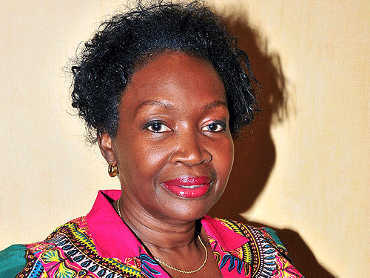Uganda’s debt burden has now hit US$ 7 billion and will continue to shoot up in the coming few years, according to Finance Minister Maria Kiwanuka, condemning a generation of largely young and unemployed generation to paying debts.
In her Budget speech this week, Minister Kiwanuka indicated that at the end of the outgoing financial year, Uganda’s external debt is expected to hit US$ 4.2 billion, more than the pre-HIPC levels while domestic borrowing is estimated to be US$ 2.8 billion.
While the World Bank’s Highly Indebted Poor Countries (HIPC) Debt Cancellation initiative of the late 1990s and 2000s had led to the forgiveness of up to US$ 3.7 billion, the NRM government has racked up more debt in recent years on account of boosting investments in infrastructure projects such as roads and energy.
Maria Kiwanuka warned that: “The Public Debt-to-GDP ratio is projected to peak at about 39.8 percent of GDP over the medium term. However, this excludes pipeline borrowing, in particular for the hydro power dams (Karuma and Isimba) and railway. Including these borrowings takes the ratios very near to the debt thresholds for sustainability as set out in the 2013 Public Debt Management Framework. It is therefore imperative that we manage our borrowing more prudently.”
But Minister Kiwanuka promised to change this course by resorting to non-concessional loans from abroad as well as engaging in Public Private Partnerships.
The soaring level of Uganda’s indebtedness is a cause of concern for many because of the impact it has on depriving vitally essential sectors of badly needed resources as the country spends billions in paying interest on the debts. During the last financial year for example, Uganda spent Ushs 1.15 trillion on interest on debts alone, which is about three times the total amount of money spent on the agricultural sector.
On the other hand, the government’s dependency on borrowing from local banks and other financial institutions has been associated with higher interest rates to the private sector as the banks find it less risky and more lucrative to lend to government.
Last year the government borrowed an additional Ushs 700 billion from Uganda, far higher than it had projected following cuts in donor funds coupled with the need to fund the war in South Sudan. This resulted into up to Ushs 1.7 trillion being lent to government by the banks as opposed to the private sector.
Comparatively however, Uganda still lags behind Tanzania and and Kenya, in terms of debt-to-GDP ratios, according to IMF’s 2012 figures. Kenya’s has a very high debt to GDP ratio of 49% while Tanzania’s is at 44%. Rwanda is the least indebted of the 5 EAC countries at 22% while Burundi is at 32%.
In his report to Parliament recently, the Auditor General of Government John Muwanga expressed concern over Uganda’s level of public debt when he said it was approaching crisis proportions.








